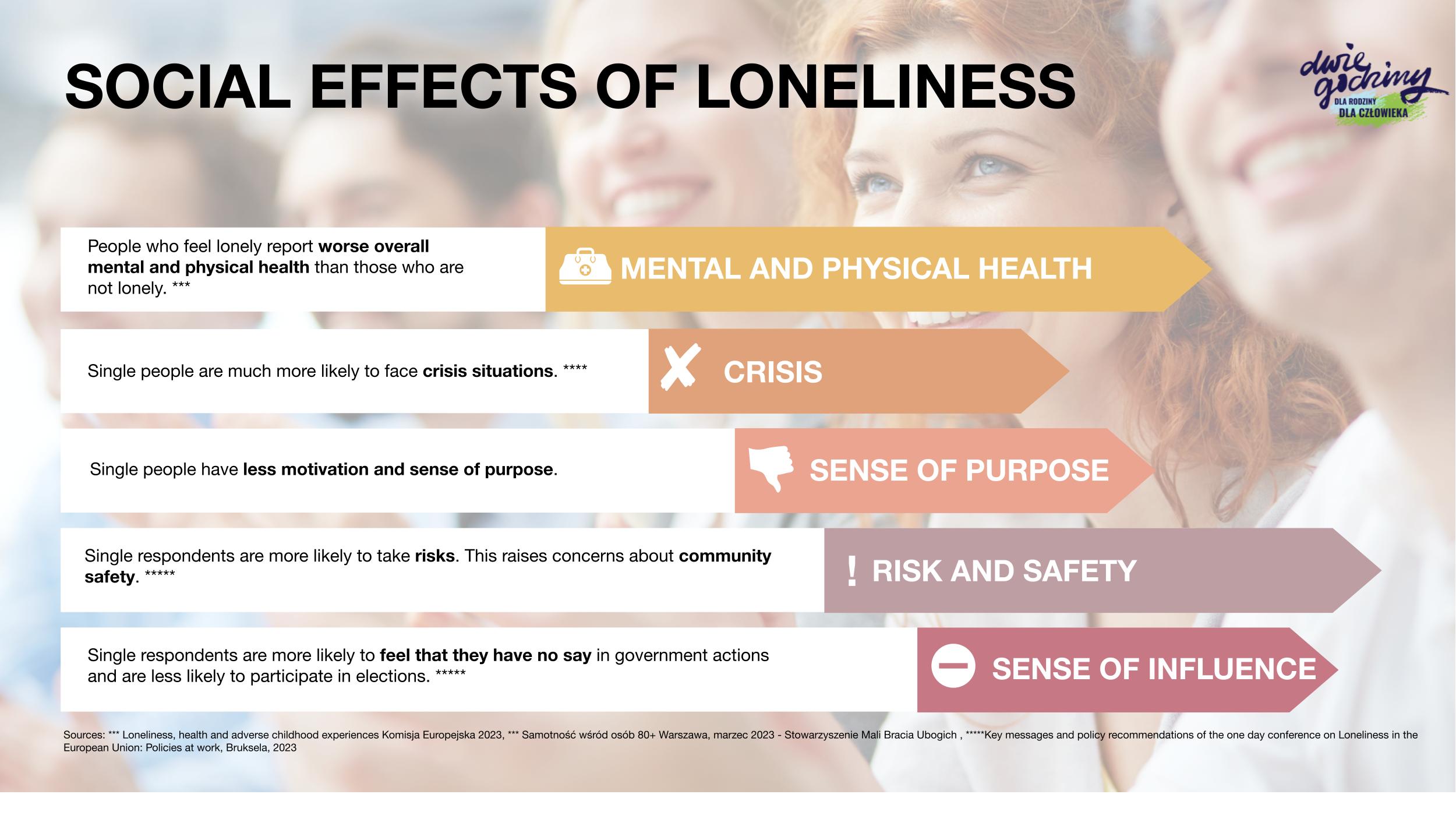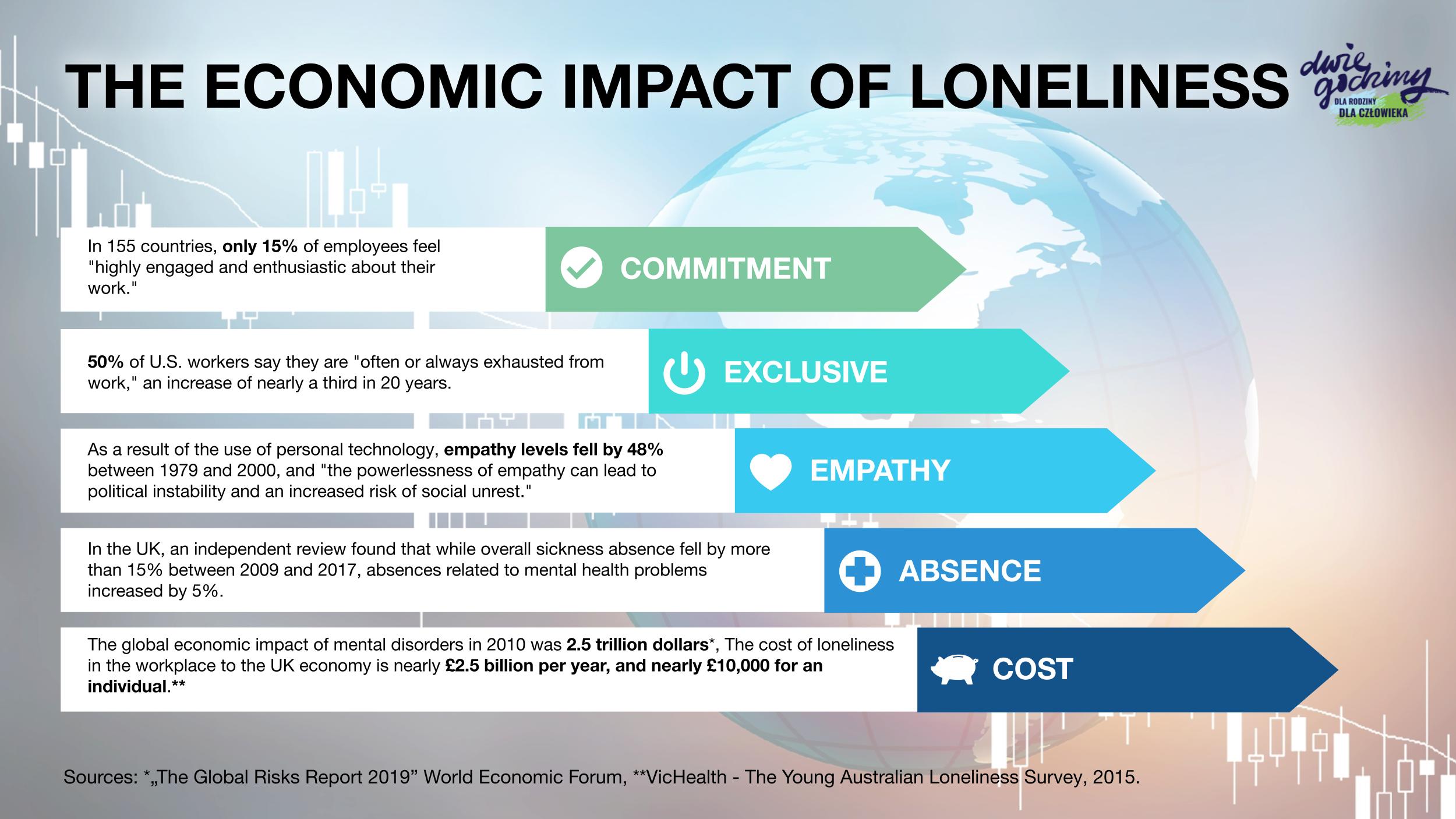Loneliness - is it really as dangerous as we think?
The data leave no doubt. Humanity has survived the coronavirus epidemic, but will it survive the loneliness epidemic? The latter is more subtle and more protracted, but no less threatening. It is also one of the main reasons why, as the Humanites Institute, we decided to establish the Two Hours for Family | for Humanity #HumanBE movement. There is no vaccine for the loneliness epidemic. Everything is in our hands.
I’m sure you remember that time in 2020 when most of us followed the incoming data on more infections and deaths with baked faces. It was a traumatizing experience on a global scale. At the same time, and earlier and later, until now, data on loneliness and what it entails – depression, the breakdown of ties, the atomization of society – hit the public and continues to do so.
At the Humanites Institute, we have been analyzing global trends and conducting research for more than a dozen years, and we already realized that loneliness is a threatening phenomenon not only for individuals, but for entire populations and economies. With the #2h4family #HumanBE action, we wanted to move the domino cube and trigger a reflection on the phenomenon of loneliness, the crisis of ties, and inspire the creation of tools to counter them. It looks like we’ve largely succeeded, although we still have a long way to go and society and business as a whole.

Two parallel pandemics
We deliberately began this article by recalling the climate at the beginning of the COVID-19 pandemic. This global catastrophe not only generated in us fear for our health and lives and those of our loved ones, but also exacerbated a phenomenon that we have been observing for years. A series of lockdowns that locked us in our homes and separated us from other people, the proliferation of remote and hybrid work, the massive increase in contact through all sorts of apps instead of in-person ones – there was no way the trend (the growing phenomenon of loneliness) we’ve been observing for years wasn’t triumphant at this time.
According to the “Report on Loneliness. The First Year of the Pandemic“ of 2021, in 2020 the number of people who attempted suicide exceeded 12,000 for the first time in 20 years. 43 percent of these attempts ended in death. This is the most alarming data we can find in this report, but it’s worth looking at others as well – one in four Poles experienced a decline in mood and energy during this time. 17 percent struggled with insomnia. Next to pregnancy, mental problems were then the most common reason for sick leave, but only 18 percent of those who experienced them decided to seek help from a specialist.
It’s hard not to notice that in addition to fear for our lives and the health of ourselves and our loved ones, the other feeling that dominated during this time was loneliness. We were deprived not only of our daily meetings over coffee in the social room at the office, not only of joint outings to the cinema or a party, but also of the family gatherings so necessary for our well-being. Surely you know such people, or are one of them yourself, who did not spend Easter 2020 at their parents’ house for the first time. However, the loneliness epidemic did not come to us with the coronavirus. At the Humanites Institute, we were sounding the alarm years before COVID-19 came to us.
Lonely youth, lonely old age
When we write about the scale of the global problem, this is what we mean. Loneliness is being faced by Australia, for example, as can be clearly seen in a study conducted by VicHealth, published in March 2015, a time when in our wildest dreams we never imagined that in a few years a dangerous epidemic would effectively separate us from other people. The research report is titled “The Young Australian Loneliness Survey“ and it looks at loneliness among very young people – Victorian residents between the ages of 12 and 25. As early as nine years ago, Australian teenagers and young adults complained of unpleasant psychological experiences having to do with loneliness. One in four people declared that they had felt lonely for at least three days in the past week. One in three said they felt lonely 3 or more times each week. The higher the level of loneliness a person declared, the more their risk of social isolation, depression and anxiety increased.
Loneliness among children, adolescents and young adults is now a phenomenon of such concern that it is becoming prominent in public debate.
One need only recall here the discussion of the collapse of child psychiatry in Poland, or the European Commission’s 2023 report “Loneliness, health and adverse childhood experiences“. It shows that when it comes to solving this problem, the European Union is somewhat behind – Japan and the UK have set up a special office of a minister for loneliness! Meanwhile, when it comes to Europe’s youth, the EC report shows the following – 36 percent of people under 30 feel lonely most of the time. But lest we think that the problem goes away with age – the report “Loneliness among people 80+“, prepared by the Little Brothers of the Poor Association in 2023, shows that the problem is not alien to this age group either. 26 percent of the people surveyed feel loneliness.
Does technology really benefit us?
The conclusions of the studies discussed above get even more disturbing when we superimpose on them the exponential growth of new technologies, which are intended to make people’s lives easier, but in practice – exacerbate their loneliness. Tools such as Skype, Zoom and Slack have made it easier for business leaders to organize their work and given them the ability to connect in real time with partners located on the other side of the globe. At the same time, they have made us lose the excuse to have face-to-face contact with each other. This is a great loss – such contact once gave birth not only to brilliant ideas, but also to the feeling that we were creating something together.

In the pages of THINK TANK Center Magazine, Zofia Dzik summarized the correlation between the phenomenon of loneliness and technological progress
“The development of new technologies increases social alienation and prompts people to satisfy their natural need for closeness in the virtual world, which has further negative consequences in the form of a growing sense of loneliness. The number of virtual companions powered by artificial intelligence has been on the rise since the pandemic. Liberty Vittert, a professor in data science at Olin Business School, says based on research that the availability of “AI friends” is exacerbating men’s loneliness. The dynamic development of AI, in conjunction with the development of virtual and augmented reality, is moving in the direction of substituting relationships in the virtual world with avatar digital twins. This phenomenon is forecast to accelerate in conjunction with the development of metaversum.”
Populism and radicalization
According to a report prepared in 2022 by the Generation Institute, titled “Feelings of loneliness among adult Poles”, 54 percent of us feel it at a level above the population average. In Poland, men under the age of 34, not in a relationship, without children, and unemployed are particularly vulnerable. You don’t have to be a philosopher to guess that it is from this group that those willing to trust populist slogans are recruited. In this context, the resurgence of nationalism or various radicalisms ceases to be surprising.
The economic impact of the phenomenon of loneliness:
Loneliness not only negatively affects our mental and physical health or our sense of meaning in life and at work, but is also the cause of costs to be borne by companies or entire economies. According to “The Global Risks Report 2019 World Economic Forum”, the global economic impact of mental disorders in 2010 was $2.5 trillion. The cost of workplace loneliness to the UK economy is nearly £2.5 billion per year, and nearly £10,000 for an individual (per VicHealth – The Young Australian Loneliness.) Survey, 2015,

Global Movement for Proximity #HumanBE
At the Humanites Institute – Human and Technology, we realize that the feeling of loneliness that is born in one unhappy human heart can be dangerous for the whole world. When we established the Two Hours for Family | Humanites movement in 2012, even before authorities began to speak out about the global epidemic of loneliness – we had several goals in mind: countering the breakdown of relationships and the phenomenon of loneliness as well as concern for well-being and mental health.
By inviting #2h4family #HumanBE Employers to the campaign, we focused on raising awareness and education: how important human relationships are – qualitative, intergenerational, based on good conversation and/or shared passion. We raised the point that without them, neither the individual, nor society, nor business can cope. Only a concerted effort to form a conscious, happy, cognitively open, proactive and socially sensitive human being will help us stop disturbing global trends such as loneliness.
A Great Social Change in work culture and lifestyle!
Through companies that support employees’ social and family roles, the campaign has a social dimension, as one in four working people in Poland participate in the #2h4family #2h4human campaign. The campaign has a positive impact on the mental and emotional health of these individuals. And the micro-change we initiated has a macro-effect.
The Humanites Institute has been closely following economic, technological and social trends for more than a dozen years to responsibly and professionally support the market in the development of an innovative economy, taking care to preserve human subjectivity. The philosophy of Zofia Dzik, President of the Humanites Institute – a systemic approach to the ecosystem in which human beings live and work is gaining more and more appreciation, as evidenced by the development of projects carried out by Humanites in the space of #Consistent Leadership, key competencies of the future, systemic approach to sustainable development (#ESG), human well-being and responsible development of technology.
ESG and sustainability
Due to legislative changes, more Polish companies will soon be required to report their ESG activities, and the middle “S” (social) component is what Humanites is responding to.
Learn about our other projects with which you will take care of your ESG policy.
Join our Partners!
Contact us:
katarzyna.lorenz(at)humanites.pl